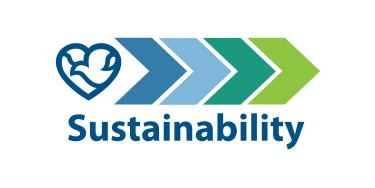




825 Sustainability Newsletter - February 2024

The 825 Building Sustainability Ambassador Leadership Team (SALT) is pleased to introduce a new email newsletter for employees who work in the building. Methodist Health System is committed to meeting its 2030 sustainability goals as part of the mission to improve the health of our communities by the way we care, educate and innovate. You can learn more about these goals on the Methodist sustainability dashboard.
825 Building Updates
- We completed our first observational waste audit in January with a goal of better understanding how waste is sorted throughout the building. The results are still being evaluated but some initial insights are listed below:
- In the kitchenettes around the building, there are many compostable items found in landfill containers. This is not the case in the 825 Café where compost bins are accessible.
- Many bins around the building are often less than 25% full throughout the day.
- Our compostable Coke cups are often incorrectly placed in recycling when compost bins are not easily accessible.
- A lot of paper ends up in the landfill bins. This paper should be diverted into the DataShield bins for shredding and recycling.
- You may have noticed the change in flatware offered at the 825 Building over the past several months. The previous black flatware was made of unrecyclable plastic. Given the amount of disposable flatware that’s used and thrown away on a daily basis, the Food and Nutrition Services team deemed it a net-positive to source and stock compostable flatware in the 825 Café. If you don’t have your own reusable flatware, please make sure to put these new flatware items in the compost bins in the café when you’re done using them. Don’t forget that the disposable Coke cups, lids and straws are compostable, but not recyclable. Napkins and paper towels can also be composted. We are also working on getting more composting bins available – stay tuned for updates.
Note: The term compostable is used to describe a product that can disintegrate into non-toxic, natural elements. Non-compostable items like plastic and Styrofoam waste can take anywhere from 20 to 500 years to decompose.
The 825 Building is working on returning to a centralized waste plan. Using centralized waste bins instead of personal deskside bins, can help increase the amount of waste diverted from the landfill through reductions of use, composting or recycling.
Click here for more information. If you have a waste bin that you’re no longer using, please stack it next to your centralized waste area for collection. The Facilities team can distribute these bins to patient care areas around the health system.- Coming soon: Earth Month/Week/Day! April will be here soon and with it comes numerous activities around the health system and at the 825 Building. Keep an eye out for email communication on exciting opportunities to get involved.
Small changes to make a big impact
- Go for a reusable cup instead of a single-use plastic cup (or compostable Coke cup) as often as you can. It may not seem like much, but each cup kept from the landfill is a win.
- Put all paper waste in the DataShield bins, not just confidential documents. Magazines, mailers, you name it – it can all be put in these bins. DataShield shreds and recycles 100% of the paper collected in its bins.
- Read up about common Omaha recycling myths. Recycling is a confusing topic for everyone, even the experts. There’s also a lot of uncertainty about whether
or notitems are actually being recycled. The best way to gain clarity about recycling – either in your home or community – is to get curious and do some research.
Shout outs and how to get involved
A big thank you to our colleagues who volunteered to help with the waste audit in January. This data will help us better understand where we have opportunities to clarify and educate about waste sorting.
· Stacy Hug, IT Project Management
· Teela Wright, Integrated Services
· Susan Crough, Pre-Surgery
· Chloe O’Ferral, Patient Billing
· Michelle Pham, Patient Billing
· Allison Streff, Organization Development
· Ellie Kirshenbaum, Value Analysis (SALT Member)
· Jasmine Howe, Pre-Surgery (SALT Member)
· Rollie Hardies, Operational Innovation (SALT Member)
· Ashley Oetken, Health Information Management (SALT Member)
· Savannah Kittleson, Marketing (SALT Member)
· Emily Paxton, Human Resources (SALT Member)
Help us acknowledge those doing their part
If you know of a coworker, team or department taking action to help Methodist meet its sustainability goals, let us know by emailing @email. Photos are welcome!
Participate as a sustainability ambassador
If you’d like to be made aware of future events, educational sessions and opportunities to volunteer, become a sustainability ambassador by emailing @email.
Invite a SALT leader to your team meeting
If you’d like to have someone from the SALT team speak to your team about sustainability efforts at the 825 Building, email @email.
Why sustainability matters
As a health care provider, Methodist has an obligation to care for not only patients and their families, but also the future generations. That’s why it has taken several steps in recent years to create a variety of sustainability efforts throughout the system. Whether it’s benchmarking resource use, creating a Sustainability Master Plan or, setting goals for the future, Methodist is committed to lessening our impact on the environment.
Methodist has goals in five key areas: Building energy emissions, water consumption, employee engagement in sustainability, waste and recycling, and active commuting. You can read more about each goal and the progress made toward achieving it on the sustainability dashboard.
For a printable version of this newsletter, click here.
